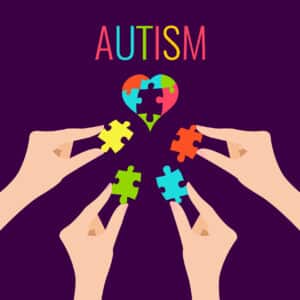Embracing Uniqueness: Spreading Awareness for Autism Spectrum Disorder

We’re celebrating differences during Autism Spectrum Disorder (ASD) Awareness Month, a time dedicated to raising awareness about the challenges faced by individuals on the spectrum. ASD is a complex neurodevelopmental disorder characterized by difficulties in speech and nonverbal communication, social interaction, and repetitive behaviors. While the exact causes remain uncertain, research suggests that genetic and environmental factors contribute to its development.
Statistics from the Centers for Disease Control reveal that ASD affects approximately 1 in 36 children and 1 in 45 adults nationwide, with boys diagnosed four times more often than girls. Despite its prevalence, misconceptions and stigmas persist, highlighting the need for greater societal understanding and acceptance.
It’s important to recognize that there is no one-size-fits-all description of autism. Depending on the severity of the diagnosis, people may struggle more with self-care, socialization, and the ability to manage themselves. Those with socialization difficulties may have very specialized areas of interest that may occupy much of their time, and they may tend to have this be the focus of their interactions with others. Others may have a hard time reading the emotions of others and could benefit from direct support and labeling of emotions, which can further support relationships and interactions.
There isn’t a cure for autism. Since it is a lifelong condition, an autistic person’s needs, strengths, and challenges may change as they transition through life stages. Early intervention has proven to improve a person’s outcome later in life. The Autism Society recommends that all children be screened for the disorder by their family doctor three times by age three.

